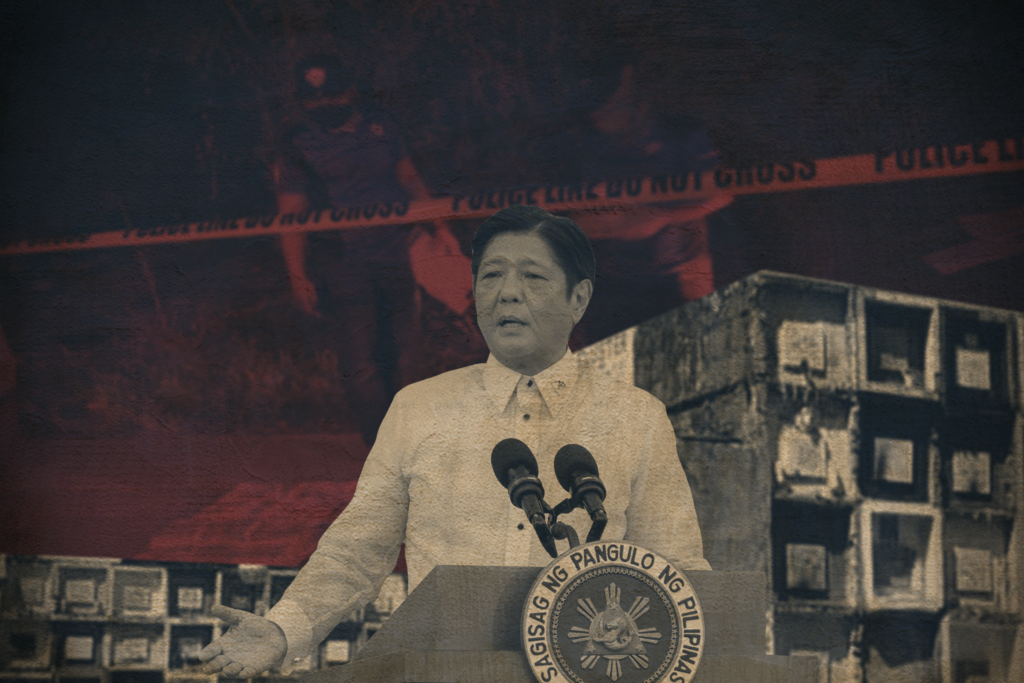‘Bloodless Drug War’ Under Marcos? Uncritical reports accept false claims about current drug approach

JEERS TO several news outfits for uncritically publishing the claims of officials that the anti-drug campaign under the Marcos administration has been “bloodless,” completely ignoring the credible monitoring by academics and human rights organizations showing the contrary.
BusinessMirror and Malaya Business Insight on October 10 reported that Surigao del Norte Representative Robert Ace Barbers, chair of the House Committee on Dangerous Drugs, put the value of confiscated drugs under the term of President Ferdinand Marcos Jr. at a staggering PHP 30 billion.
The two reports did not quote Barbers’ exact statement, but the report put in quotation marks “bloodless” to describe Marcos’ war on drugs.
The reports of Manila Bulletin, Manila Standard and Daily Tribune on October 15 and 16 clearly said that Barbers said Barbers lauded President Marcos’s approach and method. The three reports did not explain how exactly this differed from the brutal crackdown ordered by his predecessor, Rodrigo Duterte.
This time, the accounts referred to an actual statement issued by Barbers: “It’s a bloodless war. It shows that we can slay the dragon that is the drug menace without lives lost.”
Manila Bulletin also added a statement of support from Iloilo Representative Janette Garin: “The brilliance of President BBM’s anti-drug strategy lies not only in its efficacy but in its humanity.” The report quoted Garin’s praise of the large drug haul without any reference to ongoing killings of drug suspects; it was the only acct to cite a statement from the Philippine Drug Enforcement Agency about a 52 percent decrease in killings, meaning the killings have continued.
All the above-mentioned reports made no reference to the findings of Dahas of the UP Third World Studies Center, the only remaining independent tracker of drug-related killings. According to Dahas’ latest figures, 438 have died in drug-related killings from July 1, 2022 to October 15, 2023; nearly half of that was in operations conducted by law enforcement agencies.
Whether it is simply lazy reporting, bad editing, or plain ignorance of fact, reports that omit key facts, particularly in an issue as controversial as the “drug war,” facilitate efforts to sweep human rights violations under the rug. Such reports are a disservice to surviving family members of “drug war” casualties, whose call for justice have not received government’s action. Such media coverage fails to exert the necessary pressure that could force government to ensure the thorough investigation of extrajudicial killings and gain justice for all.
Leave a Reply